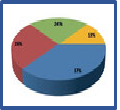Heart rate reduction using ivabradine protects against periprocedural myocardial injury and angina symptoms in patients with stable coronary disease undergoing coronary intervention
Znižanje srčne frekvence z ivabradinom zmanjša periproceduralno poškodbo srčne mišice po koronarnem posegu in izboljša simptome angine pektoris pri bolnikih s stabilno koronarno boleznijo
DOI:
https://doi.org/10.18690/actabiomed.212Keywords:
heart rate, coronary angiography, mycardial periprocedural injuryAbstract
Purpose: There are no data demonstrating that a decrease in heart rate reduces periprocedural myocardial injury (PMI) in patients undergoing elective percutaneous coronary intervention (PCI). Ivabradine is an established anti-ischemic drug that reduces heart rate (HR) and subsequently alleviates symptoms of angina. The present study sought to determine whether HR reduction via ivabradine attenuates PMI.
Methods: Forty patients with stable angina and a resting HR of >70 bpm were administered 5 mg of ivabradine twice daily. The control group consisted of 40 patients with a resting HR of >70 bpm. All patients were monitored for one month before the scheduled intervention. After admission, troponin I levels were measured before and 24 h after the procedure. Data on any change in symptoms were also collected in both groups.
Results: There were no significant differences between the groups. A significant reduction in HR and angina episodes per week was noted in the ivabradine group (62.3±7.1 bpm vs.79±10.2 bpm; P<0.05 and 0.5±0.1 vs. 2.4±2.1; P<0.05). The mean troponin I levels after the procedure were significantly lower in the ivabradine group compared to the control group (0.12±0.03 ng/mL vs. 0.44±0.08 ng/mL; P<0.05). When analyzing patients after coronary intervention, heart rate of <70 bpm
(OR 7.0; CI 1.2 to 41.7; P=0.03) and number of deployed stents (OR 4.4; 95% CI 1.1 to 17.3; P=0.03) were the only significant predictors of PMI after adjustment for potential confounders in a multivariable logistic model.
Conclusion: HR reduction achieved by ivabradine reduces PMI in patients undergoing elective PCI.
Downloads

Downloads
Published
Issue
Section
License
Copyright (c) 2021 Acta Medico-Biotechnica

This work is licensed under a Creative Commons Attribution 4.0 International License.